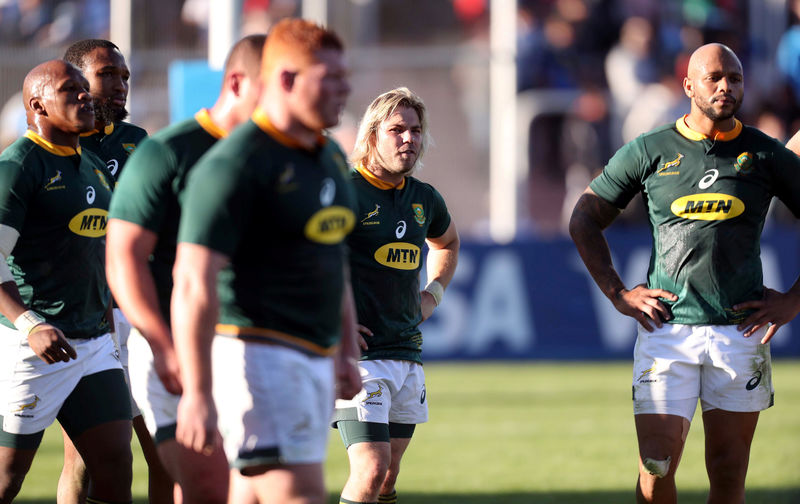
SA Rugby Scraps 30-Cap Eligibility Rule for Overseas South African Players
JOHANNESBURG – The South Africa’s rugby union (SARU) says it will scrap a rule that requires overseas-based players to have at least 30 test caps to be eligible for Springboks selection… as part of a “radical” overhaul of its contracting system. The 30-cap rule was instituted at the start of 2017 in an attempt to […]

JOHANNESBURG – The South Africa’s rugby union (SARU) says it will scrap a rule that requires overseas-based players to have at least 30 test caps to be eligible for Springboks selection… as part of a “radical” overhaul of its contracting system.

The 30-cap rule was instituted at the start of 2017 in an attempt to stem a growing tide of players turning their back on South Africa to sign more lucrative contracts at clubs in Europe and Japan.
SA Rugby said the rule would be shelved in a new model which will see home-based players get top-up payments from the governing body according to a new ranking system.
“We have been agonising over how to keep players in the country since the game went professional more than 20 years ago and the bottom line is that the rand is too weak and the economy of South African rugby too small to compete,” Springboks coach Rassie Erasmus said in a media release.
“A South African player can earn more from a two-month contract in Japan than he can if he were to win the World Cup with the Springboks this year. That’s the reality we have to face up to.
“In recent years we have focused on trying to retain a small number of high profile players. But it has been a small group and many of those players end up leaving anyway.
“Last season those contracted players only appeared for 38 percent of their available time. Once we have done our work, the new strategy could see as many as 75 players in Springbok succession planning and being financially rewarded for it.
“We had to disrupt the model.”
(Reporting by Ian Ransom in Melbourne; Editing by Sudipto Ganguly)
